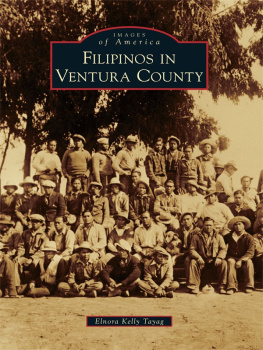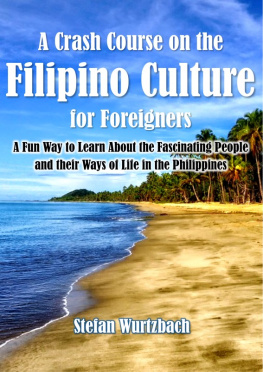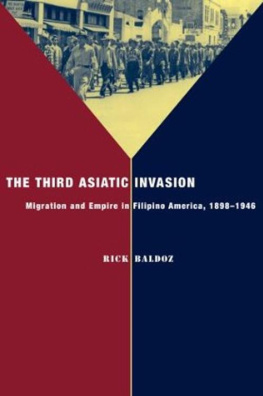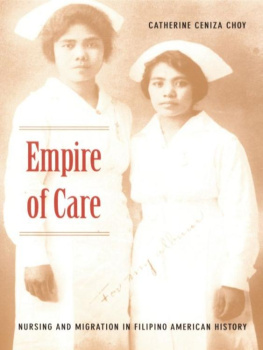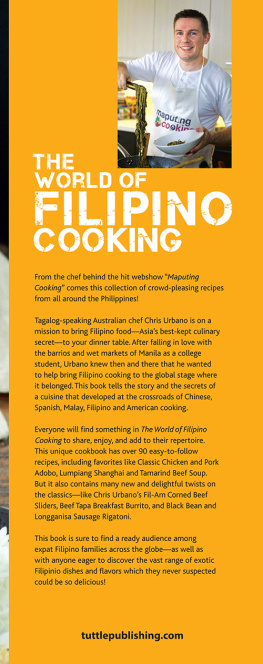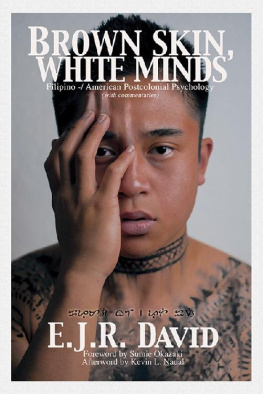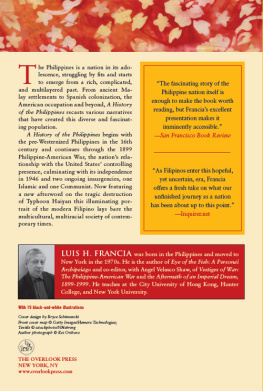NEW YORK UNIVERSITY PRESS
New York and London
www.nyupress.org
2013 by New York University
All rights reserved
References to Internet Websites (URLs) were accurate at the time of writing.
Neither the author nor New York University Press is responsible for URLs that
may have expired or changed since the manuscript was prepared.
LIBRARY OF CONGRESS CATALOGING-IN-PUBLICATION DATA
San Pablo Burns, Lucy Mae.
Puro arte: Filipinos on the stages of empire/Lucy Mae San Pablo Burns.
p. cm.(Postmillennial pop)
Includes bibliographical references and index.
ISBN 978-0-8147-4443-7 (cloth : alk. paper)
ISBN 978-0-8147-2545-0 (pbk. : alk. paper)
ISBN 978-0-8147-0813-2 (ebook)
ISBN 978-0-8147-4449-9 (ebook)
1. Filipino AmericansEthnic identity. 2. EthnicityPolitical aspectsPhilippines.
3. Performing artsPolitical
aspectsPhilippines. 4. Performing artsPolitical aspectsUnited States. 5. Popular
culturePolitical aspectsPhilippines. 6. Popular culturePolitical aspectsUnited States. 7. NationalismSocial aspectsPhilippines.
8. ImperialismSocial aspectsPhilippines. 9. PhilippinesRelationsUnited States.
10. United StatesRelationsPhilippines. I. Title.
E184.F4S29 2012
305.89921073dc23 2012024950
New York University Press books are printed on acid-free paper, and their binding materials are chosen for strength and durability. We strive to use environmentally responsible suppliers and materials to the greatest extent possible in publishing our books.
Manufactured in the United States of America
c 10 9 8 7 6 5 4 3 2 1
p 10 9 8 7 6 5 4 3 2 1
ACKNOWLEDGMENTS
I must begin by expressing my profound gratitude to the artists, cultural workers, performers, and many others who occupy the multiple stages of this book. Your labor has given me much to think about and engage with. I remain plagued by the limits of my own analysis but hopeful that what I begin here will be enough to generate further thoughts on, and surely much more complex readings of, Filipino/a performance. I thank Alleluia Panis, joel b tan, Christine Bacareza Balance, and Olivia Malabuyo for allowing me to run with puro arte.
My interest in Filipino performance was first galvanized by the social protest theater of Sining Bayan. I thank Ermena Vinluan, Abe Toribio, and the late Helen Toribio for their generosity and kindness. Their years of political work marked by disappearances, loss, and death did not taint their willingness to share their KDP stories and materials. My work with Roberta Uno, New WORLD Theater, and the Uno Archive Collection of Plays by Asian American Women started me on the pursuit of Sining Bayan. Where it got me may be quite different from where I started, but they have all made a lasting impact on my writing. Roberta provided opportunities and was the first to recognize the potential in my work. I am grateful to have been a part of her vision of a new world. I must also thank my Filipina faculty mentor and friend at the University of Massachusetts, Sally Habana-Hafner; her work with local immigrant and refugee communities in Amherst, Massachusetts, made such a difference to many of us. I have enjoyed seeing where Sunaina Maira, Cathy Schlund-Vials, and Anita Mannur, collaborators in building Asian American Studies in the Five Colleges, have taken the field of Asian American Studies.
I began this project when I was a University of California Presidents Postdoctoral Fellow at UCSanta Cruz. My two years at UCSC were hugely formative. The Feminist Studies Department was welcoming and encouraging, beginning with Bettina Aptheker. Judy Yung kindly agreed to be my faculty mentor during the first year of the fellowship. During my time at UCSC, I experienced the support of a robust and vibrant feminist presence, with colleagues such as Gina Dent, Angela Davis, and Carla Freccero. The few people whom I could have a conversation with about Filipino Studies and Asian American performance included Felicity Schaeffer-Grabiel, Karen Yamashita, and Neferti Tadiar. Neferti is and continues to be an inspirational mentor in every way.
At UCLA, I am thankful to be a part of the Department of Asian American Studies. Colleagues such as Purnima Mankekar, Victor Bascara, Grace Hong, Thu-huong Nguyen, and Keith Camacho keep my commitment to Asian American Studies aspirational. I look forward to our continued collaboration. Min Zhou, Don Nakanishi, Cindy Fan, Jinqi Ling, King-kok Cheung, and Lane Hirabayashi kindly guided me through my status as junior faculty. In World Arts and Cultures, I enjoyed the support of Susan Foster, David Rousseve, and Cheng-Chieh Yu. I particularly appreciated David Rousseves leadership and his strong support at a time of transition for the department. Kathleen McHugh was a source of sage advice. I must also thank the Department of Womens Studies for their enthusiastic welcome of me as a 0 percenter.
Barbara Gaerlan, Eloisa Borah, Meg Thornton, and Melany de la Cruz encourage me with their tireless dedication to Filipino American Studies. Don Nakanishi and David Yoo of the Asian American Studies Center and Barbara Gaerlan of the Center for Southeast Asian Studies provide crucial support to Filipino Studies at UCLA. The inspired teachings of Michael Salman, Victor Bascara, Nenita Domingo, and Damon Woods create a community for/of Critical Filipino Studies at UCLA. Ever-so-energetic students keep alive the Campaign for Filipino Studies at UCLA and give meaning to the everyday labor at the university.
I am equally fortunate to have met Tracy Buenavista, Joanna Poblete, Denise Cruz, Lorena Alvarado, P. J. Nadal, Paul Ocampo, Jolie Chea, Vivian Wu, Michael Atienza, April Joy Limayo, Diana Aquino, and Stephanie Santos at UCLA. They embody the academy as a place of transformation. I want to thank Lorena Alvarado, Liza Anulao, and Sarah Gonzaga for their research assistance.
The UC Presidents Postdoctoral Fellowship and the Woodrow Wilson/Andrew Mellon Career Enhancement Fellowship for Junior Faculty provided me with much-needed time off to complete this book. Alica Arrzon was a terrific faculty mentor for the Junior Faculty Fellowship, and I am honored that she continues to provide counsel. Other sources of funding include UCLA Faculty COR Grants, UCLA Senate Research Enabling Grants, a Center for the Study of Womens Faculty Development Grant, and UCLA Asian American Studies Center Faculty Research Support Grants. Portions of this work received valuable feedback through workshop settings. I thank the following colleagues who took time out of their own work to share their observations: Grace Hong, Purnima Mankekar, Sondra Hale, Lisa Lowe, Thu-huong Nguyen, Deb Vargas, Paul Ocampo, Preeti Sharma, Lorena Alvarado, Kathleen McHugh, Laura Kang, Keith Camacho, Setsu Shigematsu, Tammy Ho, Caroline Tushabe, Jody Kim, Mariam Lam, Felicity Schaeffer, Christine Balance, Joanna Poblete, and Mel Wong. Extended feedback from Rachel Lee, Victor Bascara, and Martin Manalansan helped shape the direction of this manuscript. I also want to thank Catherine Ceniza Choy and the Critical Filipino Studies Collective at UCBerkeley for inviting me to give a talk very early into the reworkings of the chapter on


